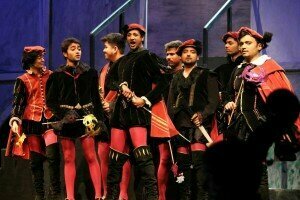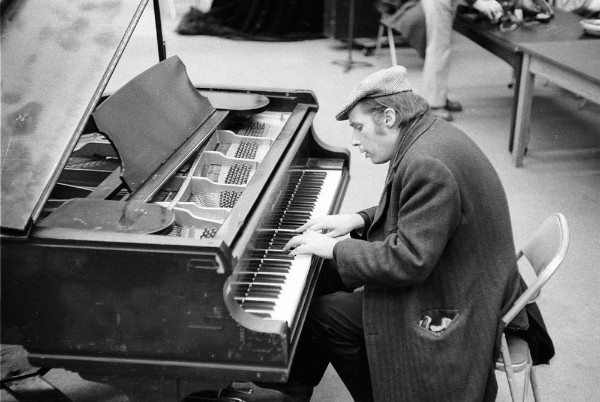
First Soloist role – Zurga
Soon after the workshop, I began my voice training with Situ Singh Bühler. Coming from a simple background, paying for all my lessons wasn’t easy, but I had help. Situ helped me find funding opportunities through friends and sponsors. My parents also devised ways to pay for each lesson. Neemrana Music Foundation pitched in as well. I was truly blessed to be surrounded by people who wanted me to get ahead.
Being alone, barely speaking the language, and not completely understanding the culture make things tough. However, I was also living the dream, immersing myself slowly in a culture that I was discovering and falling in love with. I realized more and more the uniqueness of what I was doing, especially as an Indian. While I’ve never been of the scholarly temperament, I tried to make the best of every opportunity. I tried to be a part of every concert, master-class, and opera (paid or unpaid). I also sang on the streets with my guitar, to make some extra money but also as a test; to see if I could get busy Parisians to stop and listen to my voice, albeit for a few seconds.
I always had a desire to be on stage though. Stage is where I felt most at home, it is where I learnt the most; it is where I knew I had to spend my life. Through Neemrana I managed to get opportunities to be on stage as a young opera singer. It was truly fascinating, performing this new (for me) style of Music in Embassies, for people from different parts of the world. Yet, it felt so natural! Like I had finally found what I had been waiting for. Then it was time for my big break. After I finished my twelfth standard, I was offered a scholarship to study in France.

Mercutio the sword fighter in Romeo and Juliette
After a “brief” stint of seven years in Paris, I got an opportunity to enter an Opera Studio, the equivalent of a paid internship for an opera singer. The opportunity however, was in Nuremberg, Germany. Once again, I found myself in a land where I wasn’t fluent in either the language or the culture, but had the chance to integrate myself into yet another non-English speaking society. Today, I live in Germany and I’m one of the very few professional Indian opera singers in the world.
After all this time I’m pleased to see that opera hasn’t left India, but it hasn’t been able to really seep into the society either. Young singers today are still questioning, as I was, whether this is a viable career option or not. After a week of classes with some of the new and young voices, I realized that the potential and talent in India is quite enormous. Nonetheless, we still need one (or many) brand name(s), to prove that this is definitely a viable career.
My goal, however, after all this time, is to be one of the best amongst my contemporaries. I want to be different and bring forth a new perspective- that of an outsider, who is finally on the inside.
Vikrant Subramanian – Auf dem Kirchhofe (Brahms)
By Vikrant Subramanian
This Article first appeared on Serenade Magazine on December 5th, 2017.

